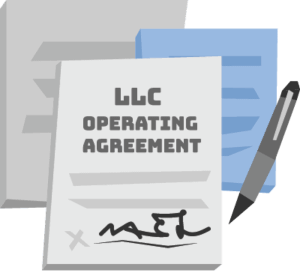How to Start an LLC in Alabama
To form a Limited Liability Company (LLC) in Alabama, you must file a Name Reservation Certificate and a Certificate of Formation with the Alabama Secretary of State. LLC filing times can take anywhere from a few days to a few weeks, depending on the filing method you choose. Our guide takes you step by step through the process of forming your LLC in Alabama.

1. Name Your LLC
Alabama requires LLCs to reserve their name before they can form an LLC. If you file by mail, you’ll need to print and complete a Name Reservation Request form. You’ll then need to wait for your name reservation to be approved before you file your Certificate of Formation, which can add significant filing time. Online filings allow you to reserve your name and file your Certificate of Formation at the same time. However, you’ll still need to make sure that your LLC’s name meets Alabama’s requirements.
Alabama LLC naming requirements
Alabama spells out the naming guidelines for an LLC in ALA Code §10A-1-5.06. To summarize, your LLC’s name must:
- Include either Limited Liability Company, L.L.C., or LLC
- be unique among businesses registered in Alabama
Note: You can search business names in Alabama to see if your LLC name is available before you begin the formation process
Getting a DBA (Doing Business As) name
An Alabama DBA is any name your business operates under that is not its legal business name. In Alabama, DBAs are called trade names, and you can get one by filing the Application to Register or Renew a Trademark, Service Mark, or Trade Name in Alabama. The filing fee is $30 if filing by mail, or $31.20 if paying by credit card.
Trademarking your LLC name in Alabama
Registering your LLC name in Alabama doesn’t grant you legal rights to the name. If another business decides to use your name, there’s not much you can do unless you register a trademark. You can trademark your name within the state of Alabama by filing an Application to Assign Trademark, Service Mark, or Trade Name in Alabama. The filing fee is $30 if filing by mail, or $31.20 if paying by credit card.
Note: Want to protect your LLC’s name nationwide? Consider a federal trademark.

2. Register Your Domain Name
Next up, you’ll want to secure a domain name for your website. Why are these important? Just like you need a street address to help people find you on a map, you need a domain name to help people find you on the web.
For domain names, it’s better to register earlier rather than later. There are two basic reasons why:
- Credibility: When you bother to establish a professional domain name, you’re letting customers know you take your work seriously.
- Consistency: A domain name that connects to your brand name makes it simpler for customers to remember you, which makes them more likely to seek you out.
At Northwest, we offer domain names in-house. Just go to our domain search page, type in the name you want, and we’ll let you know which ones are available. You’ll even get a free year of domain name registration when you hire us to form your business.

3. Appoint an Alabama Registered Agent
All LLCs in the state are required to appoint an Alabama registered agent. A registered agent is an individual or a company (like Northwest) designated to receive legal and state mail on behalf of your business.
Your Alabama registered agent must:
- have a physical address in Alabama (no P.O. Boxes)
- be present at that address during regular business hours (9 AM to 5 PM)
- agree to accept service of process on behalf of your LLC
You can be your own registered agent, but this means you’ll be the one responsible for keeping regular office hours, and your name and address will be available to the public.
Using a registered agent service
Here’s three reasons why hiring a registered agent service just makes sense:
1. Privacy: Serving as your own registered agent means that your name and address will go on Alabama’s public record. That’s not ideal if you want to maintain your privacy. When you hire Northwest, we’ll list our name and business address on all public LLC filings where it’s allowed, helping to keep your personal info out of the public eye.
2. Peace of mind: Professional registered agents handle important mail all the time. It’s what we do. With Northwest, you’ll never have to worry about time-sensitive legal or state mail going unanswered because we’ll instantly notify you the same day your mail arrives.
3. Protect your image: If your LLC is ever served with a lawsuit, it’s probably best that it doesn’t happen in front of important clients or your own employees. Let your registered agent handle your legal mail so that you can focus on keeping your business image spotless.

4. File Alabama Certificate of Formation
To officially form your LLC in the Yellowhammer State, you’ll need to complete a Alabama’s Certificate of Formation (LLC). Below is the information you’ll need to include on your Certificate of Formation:
Required
- Company name: Include an indicator like LLC.
- Effective date: You can choose a specific date for your LLC filing to take effect (no more than 90 days after the signed date). If you leave this blank, the filing becomes effective the day it’s received by the state.
- Registered agent: This is an individual or company appointed to accept service of process on behalf of your LLC. This address will go on the public record.
- Series, professional, or non-profit: Only check the box if your LLC is one of these. Otherwise leave it blank.
Optional
- Other provisions (like names of each LLC member) can be attached to the Certificate of Formation.
How do I file the Alabama Certificate of Formation?
You can submit your certificate online or by mail.
Mail:
Secretary of State, Business Services
P.O. Box 5616
Montgomery, AL
36103-5616
Online:
Alabama SOS Business Services
What does it cost to form an LLC in Alabama?
The combined cost to file a Name Reservation Certificate and Certificate of Formation with the Alabama Secretary of State is $225 (or $236 if filed online).
Member-managed vs. manager-managed LLC
In a member-managed LLC, the members (owners) will be in charge of the day-to-day operations. In a manager-managed LLC, members hire managers to run the LLC. Managers are in charge of regular business tasks like hiring and firing employees, managing credit and bank accounts, and signing agreements and contracts.
Alabama Series LLC
An Alabama Series LLC is a type of LLC that is made up of one parent LLC and at least one child LLC. Under a series LLC, owners can create an unlimited number of child LLCs, each with separate finances, members, services, and operations. If there is a lawsuit against one child LLC, the other LLCs are protected from liability. To maintain asset protection, each child LLC should have its own name, bank account, and operating agreement.
Start Your Alabama LLC Today!


5. Create an LLC Operating Agreement
An operating agreement acts as a road map for every big picture scenario your business is likely to face. While Alabama does not require LLCs to have an operating agreement, it’s just good business practice for you to draw one up. Your agreement can include anything you want, but here’s a basic list of what your Alabama operating agreement should focus on:
- initial investments
- distribution of profits and losses
- voting rights and decision-making
- transfer of membership interest
- removing a member
- dissolving the business
Remember, your operating agreement is an internal document, so it won’t need to be filed with the state, but you should keep it on file with your LLC’s founding documents.
Not sure where to start? Save time with our free attorney-approved Alabama LLC operating agreement template.

6. Get an EIN
An Employer Identification Number (EIN) is like a social security number, but for businesses instead of individuals. The IRS uses your EIN to identify your LLC on tax filings. Getting an EIN is also an important step in setting up a business bank account.
You can get your EIN for free from the IRS, or you can keep it simple and hire Northwest, and we’ll get your EIN for you.

7. Next Steps
We wish we could tell you that now’s the time to kick back, relax, and enjoy your new business, but there’s more work to be done. Here’s some other things you’ll need to be ready to tackle:
Opening a bank account
Banks have different requirements for opening business accounts, but here’s what you’ll most likely need in order to open an account for your LLC:
- a copy of your Alabama Certificate of Formation
- your LLC’s EIN
- LLC operating agreement
If your LLC has multiple members, you’ll also need an LLC resolution for Banking Account.
Alabama Business Privilege License
Most state LLCs will need to get a Business Privilege License (not to be confused with the Alabama Business Privilege Tax Return). This is a state-wide license, but you’ll need to obtain it through your local County Probate Office. If you’re doing business in multiple counties, you’ll need to apply for a license in each county. The Business Privilege License needs to be renewed annually. Licensing fees vary by county and profession.
Other Alabama business licenses and permits
If your LLC is involved in professional services like engineering, architecture, or legal work, you will likely need some sort of professional license for your business. These types of licenses are usually obtained from the state board that governs the profession.
If you run a restaurant, bar, or other food service establishment, you’ll need to look into permits from the local health and fire departments. If your LLC is involved in construction, all sorts of licensing and zoning permits are going to be necessary as well. Even if you run a home-based business, Alabama (or your town, city, or county) may require some sort of home occupation permit.
Learn all about how to get a business license in Alabama.
Alabama tax requirements
Alabama LLCs are taxed as pass-through entities. This means that the LLC’s profits will pass through to each member’s personal tax return. Profits earned by LLC members are subject to the federal self-employment tax rate of 15.3%.
Alabama Business Privilege Tax Return
Alabama requires all new LLCs to file an Initial Business Privilege Tax Return with the Alabama Department of Revenue. The report is due within 2.5 months of business formation. The tax rate for the Business Privilege Tax (BPT) is based on the entity’s federal taxable income apportioned to Alabama. Tax rates range from $0.25 to $1.75 for each $1,000 of net worth located in Alabama.
After your LLC files its initial report, you will need to file an Alabama Business Privilege Tax Return and Annual Report each year by April 15th. Check out our guide for more on how to file an annual report in Alabama.
Note: For the 2024 tax year, businesses that are calculated to owe $100 or less in business privilege tax aren’t required to file the BPT Return or pay the tax.
GET STARTED TODAY

8. Alabama LLC FAQs
The combined cost to file a Name Reservation Certificate and Certificate of Formation with the Alabama Secretary of State is $225 (or $236 if filed online).
Mailed filings in Alabama can take 2-3 weeks. The real hiccup for paper filings is that you’ll need to mail and get your Name Reservation Certificate approved first, which slows the process down. Online filings combine both the name reservation and Certificate of Formation, which cuts total filing time down to around two days.
Yes, as long as you follow the process established in your LLC’s operating agreement. In most cases, LLC ownership is transferred when one LLC owner (member) buys out the other member or members to increase their ownership stake, or take over the LLC altogether.
*This is informational commentary, not advice. This information is intended strictly for informational purposes and does not constitute legal advice or a substitute for legal counsel. This information is not intended to create, nor does your receipt, viewing, or use of it constitute, an attorney-client relationship. More information is available in our Terms of Service.
Ready to Start an LLC in Alabama?

